Acura Drops Another Hint of a U.S.-bound CDX
Officially, there is no word. Unofficially, Acura seems plenty content with the idea of bringing the Chinese-market CDX subcompact crossover to North America, so long as there’s a business case for it.
“It’s a model that interests a lot of our people, so we have our R&D guys looking into the possibility,” said Jon Ikeda, vice president of American Honda’s Acura division, last April.
Is an American design patent granted to Honda proof that the company’s braintrust have made up their minds?
With These Sales, It's No Wonder Porsche Wants a Plug-in 911
It’ll be a long time before Porsche removes any hint of internal combustion from its beyond-iconic 911. The flat-six is safe for the next decade or so.
However, Porsche CEO Oliver Blume says the company wants a plug-in hybrid version, hopefully by 2023 — when the next-generation model reaches its mid-cycle update. “It will be very important for the 911 to have a plug-in hybrid,” Blume told Automotive News last week. There’s no stamp of approval yet, but Blume feels the German automaker “will go for it.”
This shouldn’t come as a surprise. If European sales of the recently introduced Panamera E-Hybrid are any indication, an electrified 911 is an insurance policy that’s sure to pay off.
Eternal Life: NISMO Heritage Program Building New Spare Parts for the GT-R
Nissan R32 GT-R owners in Japan will be able to enjoy wheeling their treasured rides around a lot longer, thanks to a program making new replacement parts available.
The parts will go on sale in Japan the first week of December as part of the new NISMO Heritage program, meaning that poorly modified R32 Godzillas hacked together in the wake of each Fast & Furious movie can now be properly restored.
Fiat Chrysler to Guangzhou: Swipe Right
Seven years ago, Fiat Chrysler Automobiles and China’s Guangzhou Automobile Group entered into a joint venture, forming a 50/50 partnership between the companies. Currently selling three locally produced Jeep models – the Cherokee, Renegade, and Compass – the JV also imports the Grand Cherokee and Wrangler. Last year, sales tripled to nearly 150,000 units.
Now, according to Automotive News, the parent companies are in discussions to deepen their tie-up in China. Talks are apparently focusing on models, production, and sales targets.
What Does This Design Patent Mean for America?
It may look like a strange amalgam of Ford and General Motors styling cues, maybe with a dash of something else (Nissan?), but the model in the image you see above is no mystery. And it’s certainly not domestic.
The United States Patent and Trademark Office bestowed a design patent on a certain automaker today and, while the model isn’t named, we know exactly what it is. Does this Trumpchi get your vote?
World's Biggest Rip-off of a Vehicle Gets a Facelift
You’ll never guess what Indian-owned, UK-based model this once looked like. Yes, the Landwind X7, arguably the closest automotive ripoff ever fielded by an automaker, no longer resembles its alleged muse.
The Chinese SUV, built as a joint venture between Changan Auto and Jiangling Motors Corporation, has received a mid-life refresh that erases some of the tell-tale cues of the model that inspired not only the vehicle, but its very name. Meanwhile, certain executives in Coventry, UK, are worried the Landwind X7 saga might happen again.
Hope for Hyundai? China Agrees to Ignore South Korea's Missiles
When it comes to the positively frosty relationship between China and South Korea, this is the part of the movie where the two countries bump into each other at the bookstore and realize they should work out their troubles instead of giving each other the silent treatment. You know, for the kids.
For South Korea, China’s decision to warm up the relationship — which soured after the jittery country placed U.S.-supplied defensive missiles on its soil — is the best news its auto manufacturing sector has heard in ages. Perhaps soon it won’t be frowned upon to own a Hyundai or Kia in Beijing.
More Korean Crossovers? Ssangyong Isn't Giving Up on the United States
Hyundai and Kia did it, so why not Ssangyong? The India-owned Korean automaker has been itching to expand its horizons for years, but tentative plans to invade the Chinese car market have fallen victim to bad timing and geopolitics. Now, the company’s board is weighing a U.S. entry.
It’s not the first time Ssangyong Motor, owned by Mahindra & Mahindra, has eyed the United States for a big volume boost. Early last year, the automaker and its parent company temporarily shelved a proposed 2019 U.S. expansion plan, with Ssangyong’s CEO warning it could “make or break” the company.
Well, the idea’s back. With Ssangyong eager to land on American shores by 2020, a new report says the company has already made its decision.
Toyota TJ Cruiser May Reach Production If the World Proves Itself Worthy
Toyota is parading the TJ Cruiser concept around the Tokyo Motor Show, taking the public’s temperature on how it might be received as a production model. The vehicle itself is an amalgamation of a traditional sport utility vehicle and ultra-practical cargo van. With an emphasis of being simple, rugged, and sensible, it’s everything a specific subset of enthusiasts have been clamoring for.
We already hinted at our approval of the general idea with our own Tahoe Grande concept — a hypothetical model merging the dynamic features of Chevrolet’s Tahoe SUV and the unparalleled practicality of the family-friendly Dodge Caravan. It was pure sex and so is the Toyota TJ Cruiser, sagaciously speaking.
Made for America, the Nissan Titan Expands Its Horizons
In terms of monthly U.S. sales, Nissan’s line of Titan pickups ended September in the number nine spot, ahead of the midsize GMC Canyon but behind its own paleolithic Frontier. While the 3,773 Titan and Titan XDs sold last month represent a tiny fraction of the 82,302 Ford F-Series models sold in the same time frame, it’s still a 52-percent increase from the same month in 2016.
Year-to-date, however, Titan sales are up 224 percent in the United States. That’s enough to get Nissan thinking about the pickup’s potential in markets not dominated by tried-and-true nameplates from the Detroit Three.
It seems Nissan’s planning to seize some ground for itself on fertile — but traditionally unfriendly — terrain. Looking back, the looming push was obvious.
Reality Czech: If You're Waiting for Skodas in America, Prepare to Wait Even Longer
Nothing stirs up enthusiasts and cynics quite like the potential launch of a new brand in the United States. Over the past several years, we’ve reported on the motions being made by established European players eager for a thin wedge of the country’s huge car-buying pie — players like PSA group, which is now in the early days of a decade-long return to the U.S. marketplace.
Less exciting, especially considering the level of zeal expressed for quirky French cars, is the rumored emergence of the Skoda brand on this side of the Atlantic. Once a lesser player in the Volkswagen Group fold, the Czech automaker is enjoying huge sales increases. There’s a diverse lineup of vehicles, including a seemingly made-for-America SUV, the Kodiaq. The brand even filed trademark applications for model names.
So, should we expect a go-ahead decision in the months ahead, like the brand’s leadership hinted at last year? Nope. Skoda has better things to do.
As Chrysler Fades Away on the Global Stage, Right-hand-drive 300s Remain in Production
On the surface, Fiat Chrysler Automobiles’ Jeep brand is everything a modern-day brand should be. SUVs and crossovers, a looming pickup truck, and no cars. This is what the world wants.
On the opposite side of the coin, Chrysler is the brand seemingly no one, save for North American minivan buyers and a shrinking pool of traditional luxury sedan devotees, wants. Year-to-date, sales of the brand’s two-model U.S. lineup is down nearly 10 percent.
Overseas reports claiming FCA has ended production of right-hand-drive models at its Ontario, Canada assembly plants paint an even grimmer picture, even though the core RHD Chrysler model — the rear-drive 300 — is not, apparently, extinct.
This Is the End: R.I.P., Australian-built Automobiles
Maybe the dingo ate your industry? No, that cruel joke doesn’t hold a grain of truth — Australia’s domestic auto industry simply fell victim to the harsh realities of economics and globalization.
No longer a captive market, no longer a country with steep walls built of tariffs, the land Down Under found it could no longer sustain its own vehicle manufacturing presence. Because of this, today marks the end of it all. Workers will leave the Holden assembly plant in Elizabeth, South Australia, closing the door on the GM subsidiary’s 69-year Aussie car-building history.
It seems the final vehicle to leave the plant was fittingly badass.
Despite Falsified Supplier Data, Japanese Automakers Claim Cars Are Safe
Kobe Steel, the disgraced Japanese metal supplier, apparently falsified quality data for its products for over 10 years, the company now admits. Some of those products were sheetmetal and aluminum components used by a slew of automakers, among them American, Japanese, French, German, and Swedish manufacturers.
Makers of trains and airliners also made use of the metals, the strength and durability of which is now in doubt. This week, the European Aviation Safety Agency warned against components made by Kobe Steel.
While Boeing and Airbus inspect their aircraft, automakers are doing the same. Ford has said there’s no reason to be concerned, as Kobe product only went into the hood of a Chinese-market sedan. Now, four other automakers have given their vehicles a clean bill of health.
Nissan Continued Using Uncertified Inspectors After Misconduct Exposed
Nissan Motor Co. has recalled 1.2 million new vehicles it sold in Japan over the last three years after discovering vehicle checks were not being performed by certified technicians. After a lengthy internal investigation, the company stated it continued to conduct unaccredited final checks as recently as last week.
News of the discovery came on Wednesday, more than two weeks after Chief Executive Hiroto Saikawa publicly stated only certified technicians had conducted checks since September 20th. Despite attempts to remedy the widespread issue at its Japanese factories, there were at least two technicians lacking the necessary training and credentials at its Shonan Plant located in Tsutsumicho, near Hiratsuka City.
U.S. Attempts to Convince South Korea to 'Buy American'
Officials from the United States and South Korea held a special session in Washington on Wednesday as part of U.S. Trade Representative Robert Lighthizer’s request to consider amending the two countries’ trade agreement. The joint talks serve to reassess the countries’ five-year pact, with the Trump administration aiming to diminish America’s growing trade deficit with South Korea.
One of the largest issues concerns the automotive industry. Korean rules stipulate a cap on the number of vehicles U.S. automakers can bring into the country each year that adhere to the country of origin’s safety standards. Presently, that quota sits at 25,000 vehicles per manufacturer. However, no U.S. company has ever made full use of the quota. General Motors, which is the most popular U.S. brand in South Korea, only sold 13,150 domestically built units in 2016.
Those U.S. Volkswagen Diesels Aren't the Easiest Thing to Fix; VW Rounds Up Scandal Bill to $30 Billion
Twenty-seven billion seemed like an odd number, so Volkswagen upped the financial cost of its diesel emissions scandal to an even $30B. Actually, the extra expense comes entirely from the repair of older U.S.-market vehicles, which are proving less easy to fix than anticipated.
Because of this, VW has to rustle up some extra cash. The automaker set aside $26.7 billion to put the scandal behind it, and this latest price jump has the company pole vaulting over that marker.
This isn’t the only new grief facing VW, however. German media and The New York Times are reporting the arrest of the highest-ranking official so far — VW Group’s former powertrain chief.
Women Allowed to Drive in Saudi Arabia by Next Summer
Saudi Arabia doesn’t have what one might call a “progressive mindset” toward women. The ultra-conservative country is, however, attempting to improve its global image by finally giving them the right to drive. Announced in a royal decree over state television and in a simultaneous media event in Washington, Saudi Arabia says it will let drivers of the female persuasion use roadways in June of 2018.
Rights groups and Saudi activists have long campaigned for the overturn of the country’s driving ban; some women have even been arrested and jailed for defying the prohibition and taking the wheel. In 2014, one woman was detained for 73 days after two women crossed the border from the United Arab Emirates.
However, the fact that women can soon drive in Saudi Arabia doesn’t mean they will. Concerns remain that religious leaders and husbands will still attempt to forbid women from getting behind the wheel of an automobile.
With Mercedes-Benz Going Electrified, How Does the Company Avoid Tanking?
Everyone’s doing it. It’s as popular as the fidget spinner and Pokémon Go crazes all those years months ago. In a rush to signal their environmental bonafides and display their dedication to the Next Big Thing, luxury automakers are tripping over themselves in an effort to promise an all-electrified model lineup as soon as technology and finances allow.
This time, it’s Mercedes-Benz. The world’s oldest car brand doesn’t want its rivals cashing in once governments around the globe start turning off the fossil fuel taps. So, earlier this week, Daimler CEO Dieter Zetsche stepped up and made a promise we’ve heard ad nauseum as of late: every model in the brand’s lineup will soon sport some form of electric propulsion, be it a hybrid setup or full-on battery electric powertrain.
For Mercedes-Benz, this means 50 hybrid or EV models, including at its irrelevant-to-Americans Smart brand. The move isn’t without a steep cost, however — Daimler is bracing for a slashing of vehicle profit margins. In some cases, the green collected from green cars could be half that of a gasoline Benz. What to do?
Sorry, Stonic - Kia's Got All the Small Vehicles It Needs In the U.S.
If you’re an aspiring B-segment crossover owner looking for Korean value and a fresh face, but aren’t exactly enamored with the 2018 Hyundai Kona‘s looks, you’re out of luck. For now, anyways. The Kia Stonic, revealed in Europe earlier this summer, is definitely not making the boat ride to America. Well, probably definitely.
Definitely maybe.
The automaker says it has no current plans to offer the subcompact crossover — which is arguably better looking than the U.S.-bound Kona — to utility-crazed on this side of the ocean. It’s clear Kia isn’t so sure of the extent of Americans’ appetite for non-cavernous vehicles.
Waiting on a Cactus: PSA Says It Has Once Chance to Get U.S. Re-entry Right
The long-awaited return of PSA Group — French builder of Citroën, Peugeot, and DS cars — to the U.S. marketplace was never going to be a quick operation. Americans weren’t going to suddenly wake up one morning to see neighbors Bob and Carol bundling the kids into in their brand-new Berlingo Multispace. Their other neighbors, Ted and Alice, wouldn’t suddenly arrive home in their Spacetourer and C-Elysee, jockeying for the parking space closest to the door.
The C4 Cactus, with its quirky Airbump inserts and 1.2-liter three-cylinder, won’t begin appearing in Walgreen lots overnight.
For PSA, returning to the U.S. is akin to a kid standing next to a cold pool, dipping one toe in first, then the foot, followed by the lower leg. To dive in without a plan would be to risk disaster. Having already established that first toehold (which you’d be forgiven for not noticing), the harder stuff awaits, and PSA remains cagey as to when we’ll all be driving around in Citroëns. It just knows it can’t screw it up.
RIP, Ford Fiesta? Blue Oval Exec Says 2018 Model Isn't Coming to America
After months of speculation as to the fate of the Ford Fiesta in North America, as well as months of hazy non-answers from communications staff, Ford Motor Company’s B-segment program manager, Robert Stiller, has stated that the subcompact car segment in Dearborn is dead.
No more Ford Fiesta.
After going on sale in the U.S. in mid-2010 as a 2011 model, the Fiesta’s American seems destined to end this year. Buyers in Europe and overseas — always a reliable draw for itty-bitty cars — are guaranteed a seventh-generation model. Oh boy, do they ever receive a new model. The 2018 Fiesta bows not just as a three- or five-door hatch, but also in luxurious Vignale and soft-roading Active trims.
Over here? Hug your 1.0-liter EcoBoosts tightly and shed a tear, Fiesta fans. The little guy appears doomed for the chopping block. Can Ford interest you in a subcompact crossover?
Domestics Abroad: Part II - Chevrolet's Foreign Fare
Today we feature the second entry to our Domestics Abroad series. Here’s where we take a look at the international models proffered around the world that wear a domestic company’s badge on the grille, but are not offered in their brands’ domestic markets. This is ground zero for “you can’t get that here.” All nameplates you’ll see in this series are current production models.
We kicked off this series with Ford, and its 13 qualifying models. Our second entry is Chevrolet, which also places second in number of models.
Here are Chevrolet’s nine entries, in alphabetical order:
Losing Focus: A World Where Ford's Compact Car Production Stops for a Year Is Our Reality
Ford has plans to halt production of the compact Focus — a one-time juggernaut of a model — for an entire year. But wouldn’t you rather talk about the upcoming Ranger and Bronco?
Of course you would. You’d rather buy one, too, if only the resurrected nameplates were already on lots. Back in 2002, when Limp Bizkit was still on the charts and frosted tips hadn’t entirely disappeared from the hair scene, Ford unloaded 243,199 Focus cars to U.S. buyers. Compare that to the first five months of 2017, where 67,146 Foci left dealer lots in a marketplace where passenger car sales are falling like Brent crude prices in 2014.
It’s against this backdrop that Ford plans to temporarily pull the plug on the Focus. While there’s good reason for the shutdown, the automaker doesn’t seem all that concerned about it.
Rare Rides: Classic Talbot is a Simca or Matra, and Always a Rancho
Today’s Rare Ride was inspired directly by this comment on the Question of the Day, where I asked which car brand you’d bring back from the dead if given the chance. Commenter Menlo suggested the oft-forgotten Talbot, and specifically a unique vehicle they used to make.
Now we can all learn about the Matra Rancho.
Chrysler Will Stay Alive in Japan (Where It's Almost Dead): FCA
We all remember former Chrysler Corporation chairman Lee Iacocca railing against the Japanese for their uber-expensive land and not-so-open borders. Well, Jeep sales are slowly picking up in that Detroit Three-averse country, but one storied American brand isn’t doing so hot.
Chrysler. Sure, the brand isn’t doing all that great in its home country, either, what with only two models to show for itself. Still, Japanese buyers seem particularly unimpressed with the sole model Chrysler has to offer it.
Still, even with nearly nonexistent sales, Fiat Chrysler Automobiles isn’t about to throw in the towel just yet.
If One Automaker Can Let the Public Name a Model, Why Not Others?
Volkswagen Group’s Seat division has turned to Twitter to figure out a name for its upcoming three-row SUV. Yes, an automaker has entered the wild and woolly world of 140-character outrage in order to start a hashtag campaign, one destined to yield both a model name and positive PR.
Imagine, an automaker asking its fans what name they’d like to see on their seven-seater. Makes you feel all cozy and loved. There’s only one rule for naming suggestions: the 2018 SUV must have a name derived from Spanish geography, much like existing models.
While the company’s #SEATbuscaNombre (#SEATseekingName) campaign is both cute and trendy — and thus a little insufferable — it has this writer wondering if other automakers should do the same. Never mind looking like a follower, and never mind the inevitable jokes.
There’s value in “regular” people’s opinions.
Overseas Demand Boosts Ford Mustang as Domestic Sales Wane
The Ford Mustang, a nameplate actually deserving of the word “iconic,” is no less vulnerable to the whims of the market than any other model. As domestic light vehicle demand in North America cools off, so have Mustang sales.
Fortunately for Ford, the automaker took it upon itself to fling Mustangs to every corner of the world for its most recent generation, and buyers in 140 countries are now able to take delivery of the original pony car. That volume, while not America-like, has bolstered sales.
GM to Pull Out of World's Second Most Populous Country, Sell Off Other Operations in Quest for Cash
In its global push for profitability, General Motors plans to yank the Chevrolet brand out of the hands of Indian consumers.
The automaker announced a wave of restructuring in overseas markets yesterday, a large part of which is the cancellation of nearly $1 billion in investment in India and the pull-out of its only brand. Until recently, GM had hoped to cater to the country’s growing middle class with a new line of region-specific Chevy models.
GM also plans to sell its South African division and cut back on staff in Singapore. The move will help the automaker free up money to funnel towards its biggest markets — North America and China.
Engine Smorgasbord for the 2018 Jeep Wrangler, Or…?
Should you expect Ford Fusion levels of engine choice in the next-generation Jeep Wrangler? A new report claims yes, you should.
A source who claims connections at a Fiat Chrysler Automobiles plant has told Jalopnik the upcoming 2018 model will host six engines, but a rational take on the matter would suggest readers not get their hopes up — at least, not in the U.S.
Sedans and Missiles: Hyundai Slams Into Another Sales Roadblock
The frustration never seems to end for Hyundai executives. After last year’s Korean labor strife and political scandal, the brand now faces flagging fortunes in the all-important North American market, all thanks to a car-heavy lineup that once guaranteed piles of profit.
Now, the automaker faces the same problem in another global growth engine — China. While that market has also discovered its love for crossovers and SUVs, there’s another problem that Hyundai can’t turn around by rushing a new vehicle to production. Hyundai, it seems, can’t do a damn thing about high-altitude defensive missiles.
GM Fires Its Venezuelan Workforce, Many by Text, as It Flees Country
Last week, General Motors’ long-idled Venezuela assembly plant fell into the hands of the country’s autocratic government, sparking the automaker’s exit from the strife-ridden nation.
With its material assets out of its hands, the automaker’s Venezuelan subsidiary jettisoned the plant’s entire 2,700-person workforce today, Reuters reports. It did so in as abrupt a manner as the takeover itself. Meanwhile, the government wants to chat.
Honda CR-V Hybrid Debuts in China, Waits to Leap Across Pacific
It’s really a matter of when, instead of a question of “will it?”
This week’s Shanghai auto show saw the premiere of an electrified Honda CR-V that should hit Chinese dealers in the second half of this year. When that vehicle will get a chance to battle rivals on American turf remains a secret, but it’s abundantly clear that the model has a future on this continent.
After Car Buying Became Impossible, Union Members Seized GM's Venezuela Plant: Report
Lynk & Co Super Sedan is Part Dodge, Part Lamborghini, Probably Mostly Vaporware
Lynk & Co, if you hadn’t already guessed by the name, isn’t a normal car company. The upstart brand that sounds more like a hipster clothing depot than an automaker was revealed late last year following a promotional video that failed to show any products consumers could actually buy.
Now, months after the reveal of its 01 SUV, the Geely-owned company has another product to show off. This one’s a concept, sporting a design that previews a second planned model named — you guessed it — the 02. Sexy and artistic promotional shots of the arresting sedan have cropped up on the Adamsky Management website.
While Lynk & Co is as weird as it gets, this concept looks like something we’d all aspire to own.
The Kia Badge Isn't Good Enough for Korean Stingers
It was jarring, when the 2018 Kia Stinger debuted, to see the automaker’s corporate badge prominently displayed on a desirable, rear-drive sports sedan. In spite of the sales gloom that surrounds the traditional passenger car market, some of us have wondered whether the badge alone might cause performance-minded premium car buyers to overlook the model when it appears on dealer lots.
In Korea, however, no one will be able to blame the model’s success or failure on the presence of a “Kia” badge. That’s because it won’t have one.
Eastern Promises: 'Buick Volt' Ready to Tempt Chinese Greenies
Badge-engineered bliss awaits environmentally conscious General Motors buyers in China. Announced today, the Buick Velite 5 range-extended electric vehicle will soon launch in the car-hungry marketplace, but Americans might recognize it as something else.
Hiding in plain sight behind that Buick badge — which carries plenty of sales clout in China — is a Chevrolet Volt, which aims to compete against a host of low-cost electrics and gas-powered compacts.
Lexus Sees Fertile Ground in India, Launches Trio of Models
After being knocked off the top perch of the “fastest growing economy” podium in 2016, India is expected to return to the Number One spot both this year and next. The world’s second most populous country has seen average per-capita incomes rise to record levels and, while the average only amounts to $1,500 greenbacks, India’s well-to-do class is thriving.
For automakers, the untapped Indian market offers big potential. The latest to the game: Lexus, which arrived today to offer citizens something better than just a Camry.
'All-new' Lincoln SUV to Be Built in China, Ford Claims
Not content with just offering Chinese buyers the Lincoln Continental, Ford Motor Company plans to take a page from General Motors’ playbook and offer the expansive market its own home-built SUV.
The automaker intends to partner with China’s Changan Automobile Group to build Lincolns in the city of Chongqing, starting in late 2019, Ford claims. The two companies reportedly began talks early last year.
After Opel, Where Will GM's Chainsaw Swing Next?
General Motors isn’t finished slashing products or dialing back plans to bolster its financial standing.
After unloading its near century-long Opel and Vauxhall holdings to France’s PSA Group, a move that came after failed attempts to return the European brands to profitability, GM plans to turn its focus on underperforming products in North America. There’s a chance that a model you hold dear could find its way to the chopping block.
Alpine's Drop-dead Gorgeous A110 Will Remain an Ocean Away
In the immortal words of ex-fighter pilot and Boeing 707 rescuer Ted Striker, “What a pisser.”
The resurrected Alpine A110, which never seemed like it had much of a chance of making it stateside, is officially barred from American driveways. Renault’s retro, mid-engined performance stimulated saliva glands when it debuted last year as a near-match concept car, leading some to dream that a French alternative to Porsche’s Cayman could become a U.S. reality.
The late Charles de Gaulle once said that France has no friends, only interests. Well, France isn’t interested in making this American dream come true.
GM Makes It Official: PSA Lands Opel in $2.3 Billion Deal, America Keeps Its Buick Supply (for Now)
As expected, General Motors started off the work week by officially announcing the selloff of its European division to France’s PSA Group.
The Opel and Vauxhall brands, which have stubbornly resisted all attempts to return to profitability, are no longer GM’s problem. It’s a complex deal, but on the product side, Americans can still expect a generation of Buick Regals based on the Opel Insignia.
Hindustan Ambassador Only Part of PSA's Push in India
The Hindustan Ambassador, in production from 1958 to 2014, is an iconic vehicle. Iconic enough that news of Peugeot SA’s acquisition of the Ambassador brand from the C.K. Birla group’s Hindustan Motors got a fair amount attention despite most of the automotive news media being focused on Peugeot parent PSA’s proposed purchase of Opel and Vauxhall from General Motors.
As it happens, the $12,000,000 Ambassador deal is part of a much larger play in India by PSA that may work out to be as significant a move on the subcontinent as the Opel deal is in Europe. Now that the French government has bailed out PSA, they have big plans for India.
Volvo Owner and PSA in Race to Snap up Lotus, Parent Company, or Both
There’s a battle brewing between France and China over a famous Malaysian-owned British automaker. Who said globalization was in danger?
Geely, Volvo’s Chinese parent company, is in talks to buy Proton, the Malaysian owner of the famed Lotus brand, the Financial Times reports. Proton’s not doing well these days, all thanks to an influx of affordable imports that has eroded its domestic market share. To reach its goal, Geely must first stave off stiff competition from Europe.
France’s PSA Group, maker of Peugeot and Citroën (and potential future owner of Opel and Vauxhall), also wants to get its hands on Proton. However, it looks like the competing automakers want different things from the deal.
Canada's Detroit Three Union Boss Seems Pretty Darned Pleased After Trump's Trade News
Reactions are varied following this morning’s announcement that President Donald Trump will renegotiate the North American Free Trade Agreement and pull the country out of the Trans Pacific Partnership.
North of the border, however, the leader of Canada’s Detroit Three autoworkers was apparently dancing a jig. Unifor president Jerry Dias seemed thrilled when he appeared on talk radio to sing the praises of the president’s executive actions. Trump’s moves are “a great opportunity to right the ship,” he said.
Daimler Figures Russia Has Pretty Much Bottomed Out, so Why Not Build a Plant?
Russia, the country where Shoviet Shub captain Sean Connery learned to fish, might be on the verge of a modest economic rebound.
After tanking hard in the wake of collapsing oil prices, the country’s rickety economic state prompted many automakers to abandon plans for production growth or pull up stakes altogether. General Motors was a noted casualty, though Lada sailed through the turmoil in fine shape.
Early last year, it seemed as if parent Daimler would head west instead of building a Mercedes plant in the Motherland. However, that’s no longer the case, according to the country’s trade and industry minister.
Here's Your Hot Toyota Yaris Hatch; Does the U.S. Want It?
Toyota promised the world a Yaris hatchback that would valiantly rise above the role of a plain-Jane commuter car, and here it is.
Expected to premiere at the Geneva Motor Show this March, the high performance three-door subcompact borrows inspiration, parts, and probably a name from Toyota’s Gazoo racing division.
Freaky Friday: Man Discovers His 2014 Jetta's Street Value is Much Higher Than Blue Book
Have you ever bought a secondhand car, only to find the previous owner forgot his or her favorite CD in the stereo? Well, that didn’t happen to a Kentucky man.
That Volkswagen owner’s discovery is just one of the weird news stories arising from a polar vortex-plagued world. Elsewhere, officials warn of mammal tongue baths, and a politician practices bad automotive PR.
Koda in the U.S. Would Be 'Pure Suicide,' Says Volkswagen Brass
Volkswagen AG’s Škoda subsidiary claims it’s interested in bringing the value-packed Czech brand to the U.S., even going as far as copyrighting model names, but the powers that be in Wolfsburg couldn’t hate the idea more.
According to comments published by Automobile Magazine, Volkswagen execs want nothing to do with the idea of a stateside Škoda. It looks like the surging brand’s parent company is prepared to kill the dream for good.
Acura's SUVs Can't Compensate for Sinking Sedans; Will a New Beak Help?
Burying its loathed “shield”-style grille in the deepest depths of history’s dustbin is a big part of Acura’s plan to reverse falling sales, but product seems to be at least as big a problem as design.
The automaker, which has seen its U.S. sales fall 10.5 percent so far this year, is in the midst of a design pivot, though many feel that the brand needs a bigger shake-up then just a “diamond pentagon” grille.
Freaky Friday, Military Edition: How Did a Scottish Ambulance Get to Aleppo?
It’s Friday, but it’s also Veterans Day. North of the border, it’s Remembrance Day — something I was reminded of when a pair of CF-18s buzzed this writer’s home at 11:11 this morning.
Because of the solemn date, our weekly look at odd automotive news will take on a camo green tinge. Sure, we’d love to regale you with stories of Allied forces turning their jeeps and 6×6 trucks into mobile gun platforms in the mud of western Europe, but that’s in the past.
Today, we look at a Syrian mystery vehicle, militants with wood, and a city terrorized by a bland color.
You Won't Find the Ford Bronco's Engineering Team in the U.S.
Even though Ford hasn’t confirmed it, we know a reborn Ford Bronco is on its way.
Long before a UAW rep spilled the beans about the manly model’s return, Bronco buffs were already giddy with anticipation. TTAC’s managing editor has hardly slept a wink.
Now, word comes that there is indeed a development team hard at work on the model (expected to appear sometime in 2018), but you won’t find them in the vast lands bordered by the Pacific, Atlantic and Gulf of Mexico.
Automakers Play Nice With Trump, Silently Hope Tariff Talk Was Bluster
Not knowing what to expect from President-elect Donald Trump once he moves into the White House, automakers spend yesterday issuing nice-sounding congratulatory messages that masked an industry-wide concern over what happens next.
Formal pleasantries aside, one automaker feels that Trump’s policies could stand to benefit its bottom line.
Subaru's Parent Kills Industrial Division, Plans to Coddle Its Overachieving Child
It was a bombshell decision that Fuji Heavy Industries describes as “extraordinary.”
Subaru’s parent company announced today that its board of directors has decided to eliminate its industrial division to free up resources for its car division. FHI built its empire on small industrial powerplants, spawning a quirky car company in the process, but that car brand is now the corporation’s main focus.
What does the new love mean for Subaru?
Mercedes-Benz X-Class Concept is the Steed for Rhineland Cowboys
Mercedes-Benz unveiled two concepts for its mid-sized pickup, dubbed the X-Class, in Stockholm, Sweden today. The event was live-streamed across the globe and, at thirteen minutes in, two gussied up Nissans took the stage.
There's One Thing Getting in the Way of an Even Hotter Ford Focus RS
The buying public wants one. You probably want one. But Ford executives on both sides of the Atlantic are growing cold feet over the idea of a hotter Focus RS.
The automaker is walking back expectations for the proposed RS500 and is ready to scrap the hotter hot hatch (scalding hatch?) idea altogether, Autocar reports.
Why?
As Battle for Mosul Begins, Ambassador Want to Know How ISIS Got So Many Toyotas
The long-awaited battle to retake the northern Iraq city of Mosul — an ISIS stronghold for the past two years — began this morning, with Allied forces supporting the Iraqi Army troops and Kurdish Peshmerga fighters in their quest against the Islamic State.
One player has a heavy presence on both sides of the battle, and it isn’t a person or organization. It’s the Toyota Hilux, the go-to vehicle for terrorists and allies in the war-torn region. So numerous is the do-anything pickup, that the Iraqi ambassador to the U.S. questions how so many Toyotas could find their way into ISIS hands.
Jeep, No Longer Unstoppable, Wants to Fix Its Game in an Overlooked Market
After posting sales gains that most automakers would sell their souls for, Jeep’s skyrocketing climb hit the upper limits of the atmosphere in September, with sales dropping by 3 percent compared to the same month a year ago.
Maybe the Jeep brand isn’t bigger than Jesus. With the new vehicle market cooling off and two of its oldest — but still strong-selling — models being pared down to one, Jeep needs to branch out to keep the momentum going.
It has products up its sleeve — a Wrangler pickup and $140,000 luxo-ute to name a couple — and has factories planned for developing nations everywhere, but Jeep could reap a sales reward if it stopped screwing up in one obvious but overlooked market.
Automakers Hit Bottom in Engine Displacement, May Be Forced to Upsize
If you think engine displacements have become a little too European over here, you’d hate to see the motorcycle-worthy powerplants motivating econoboxes on the other side of the pond.
Paired with the magic of modern technology, inline threes and parallel twins can now make enough grunt to move respectably sized vehicles. However, those days could soon be over, all thanks to ambitious regulators and the downsized engines’ tendency to spew man-sized amounts of pollution.
And if you think this isn’t America’s problem, think again.
Ssangyong Hopes to Inject More Mediocre Crossovers Into the U.S. Market
America’s unhealthy obsession with crossover vehicles has led to Ssangyong Motor Company’s decision to enter the U.S. market by 2020.
The Korean manufacturer has hinted at, and even announced, plans to come to America before with no resulting action. This time, things seem a little more realistic, with Automotive News reporting that the company is designating two small SUVs for the United States — the Tivoli and Korando — and giving itself a slightly longer timeline.




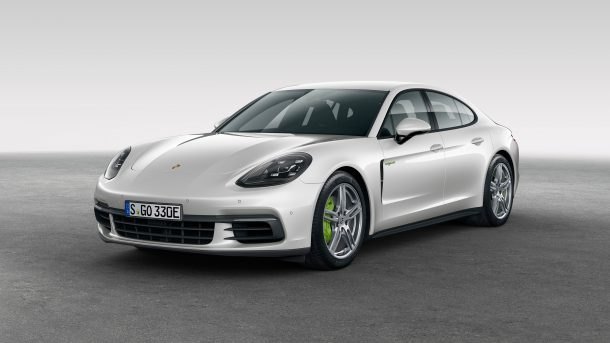
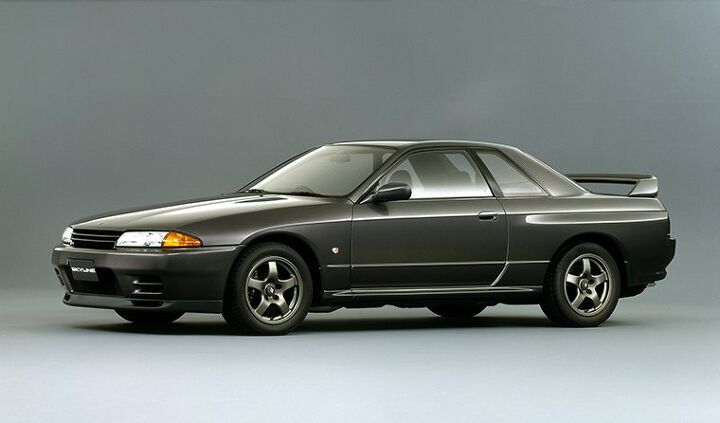
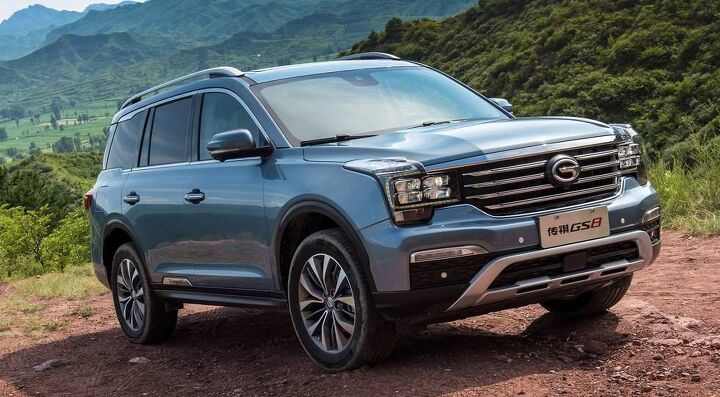
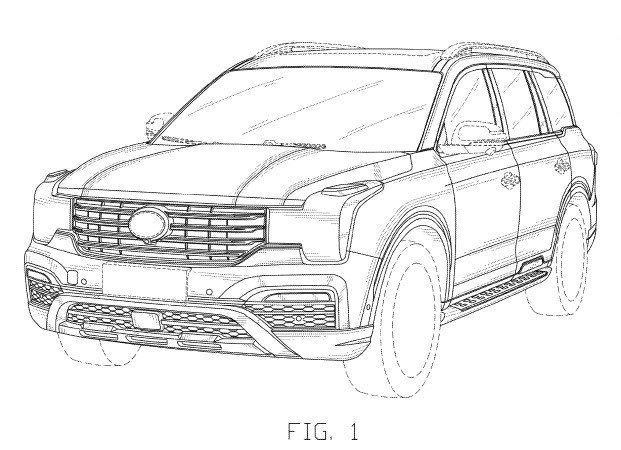
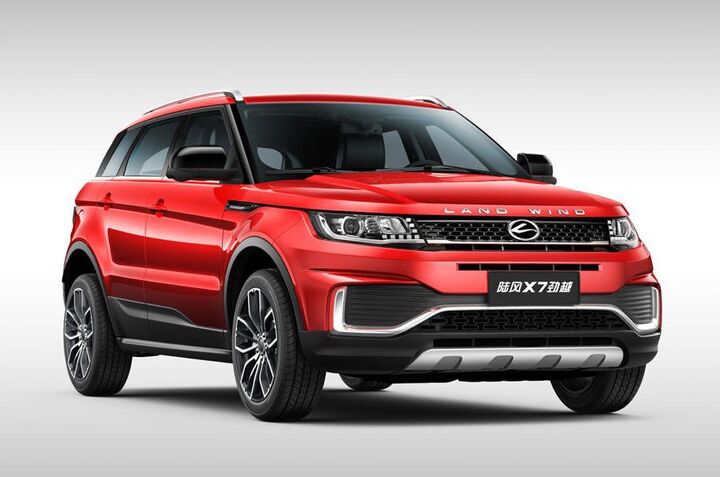
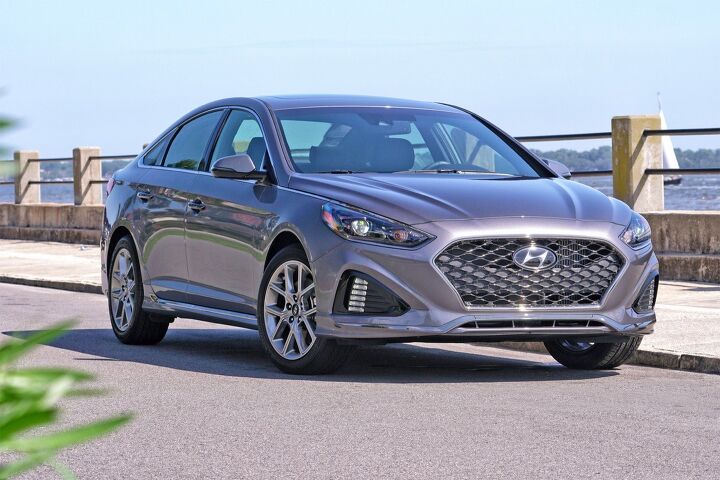
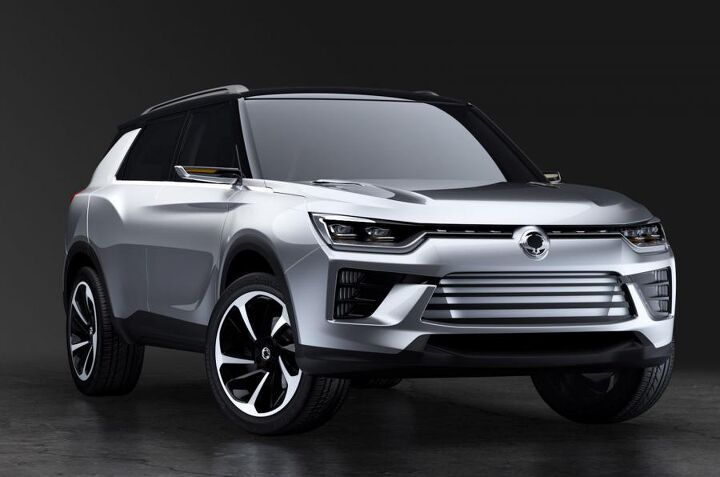

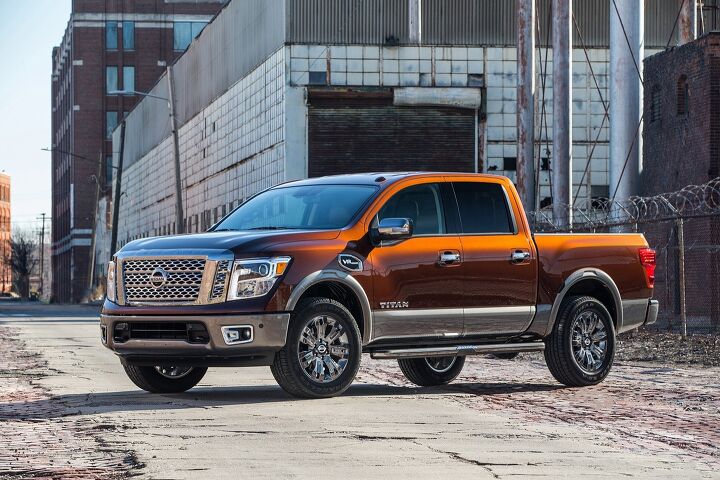





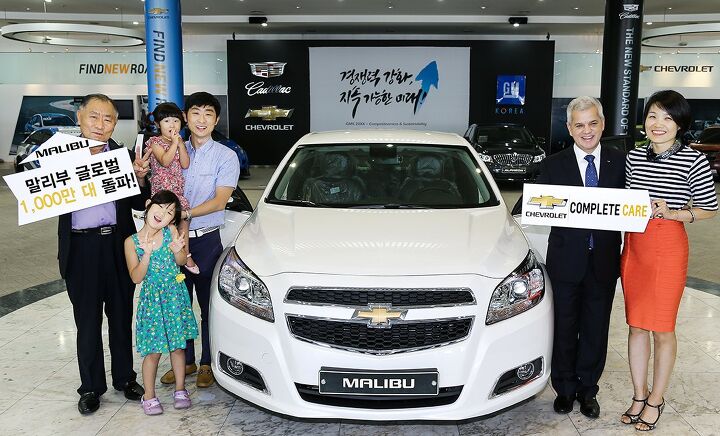




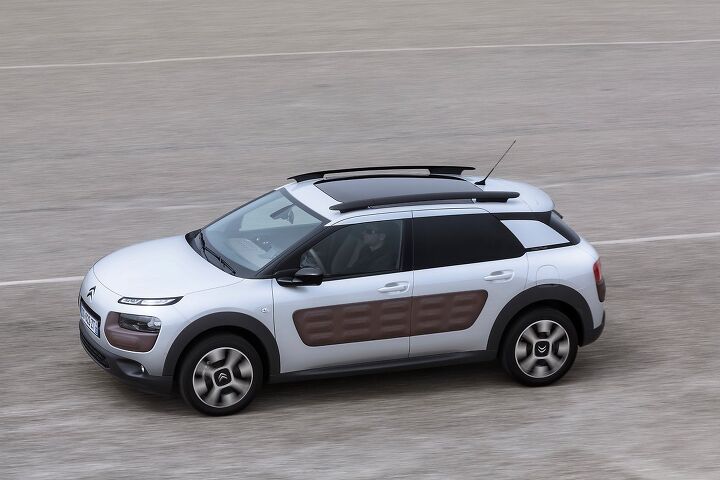

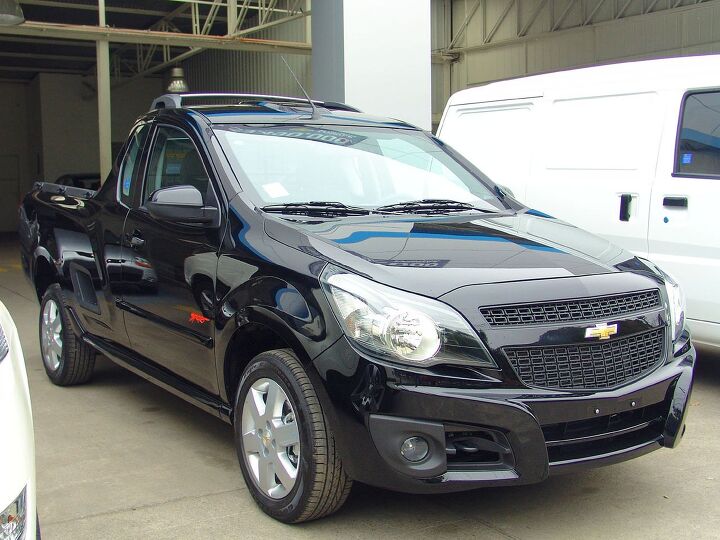
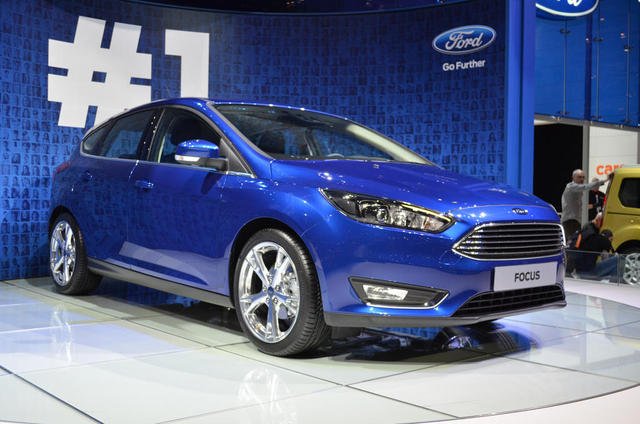

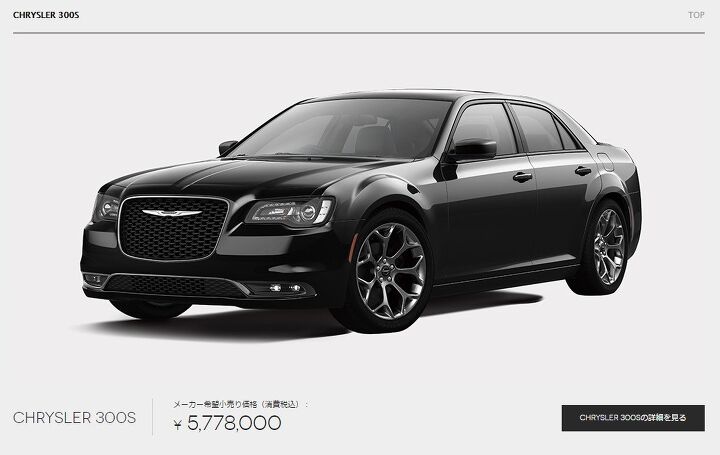



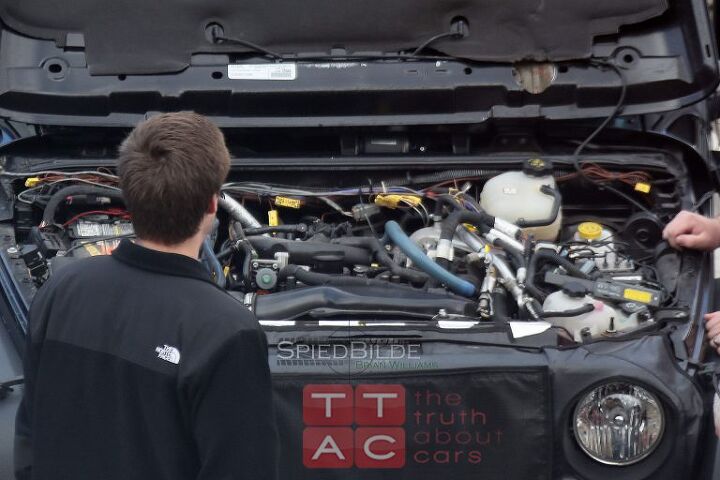





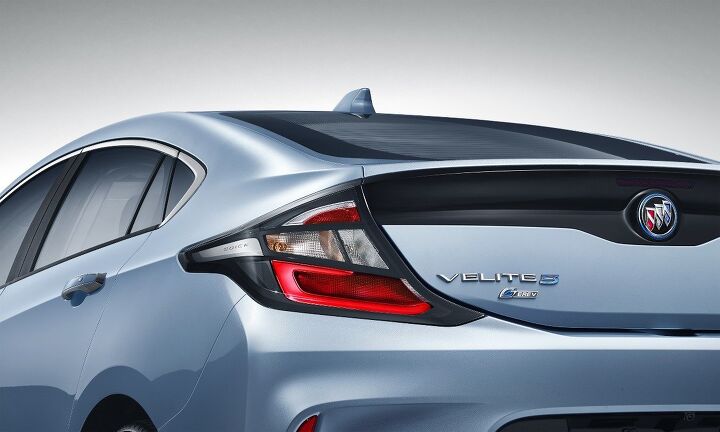
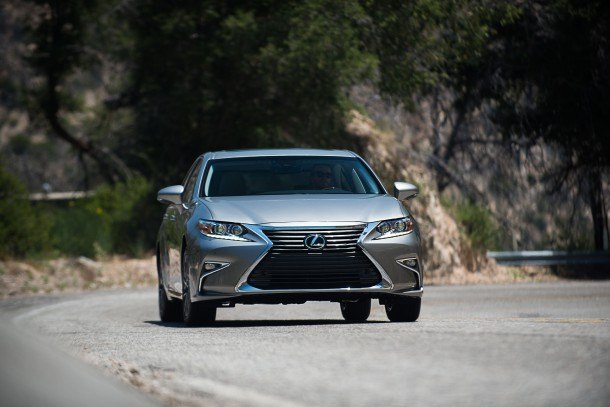




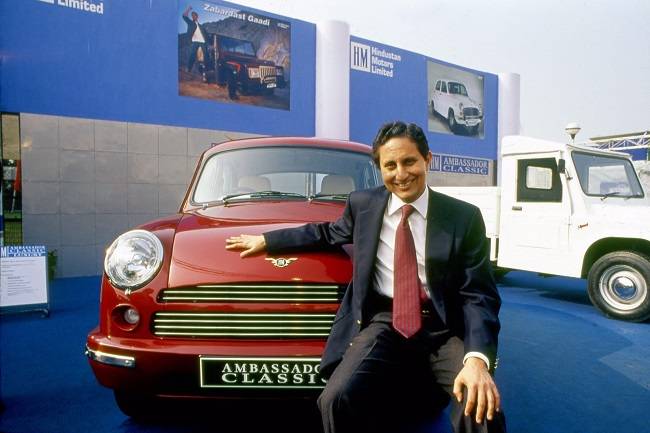


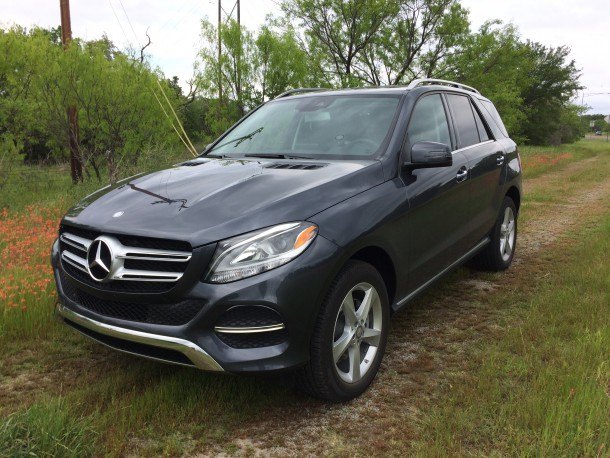
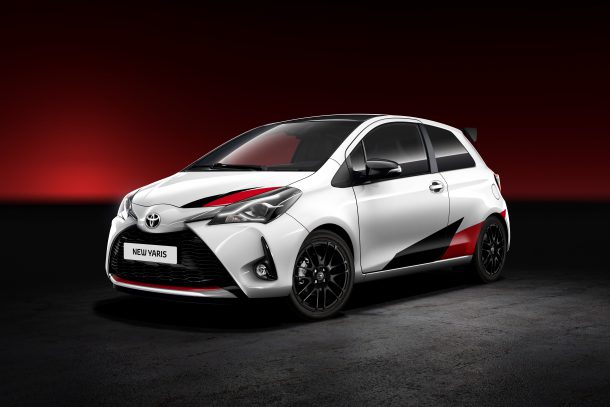

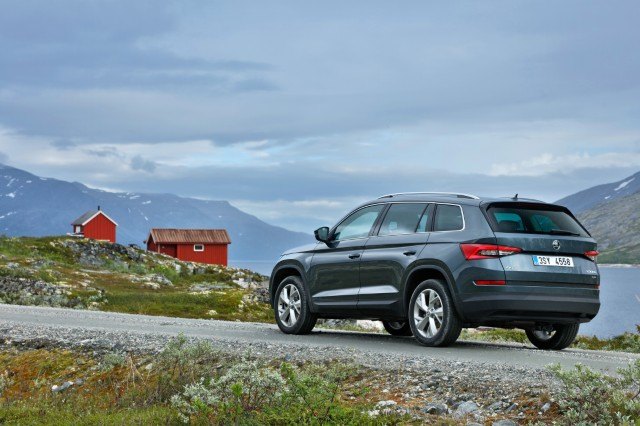
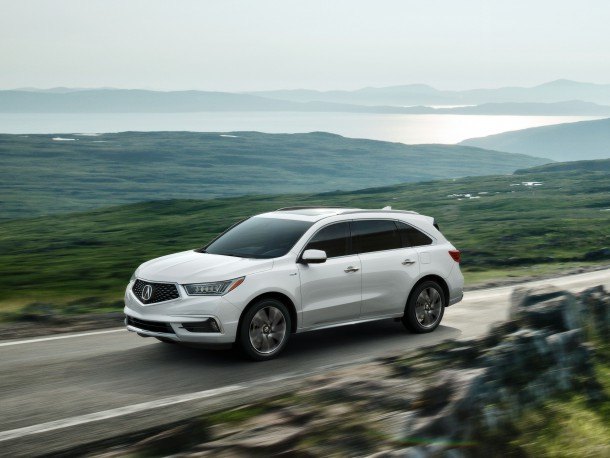

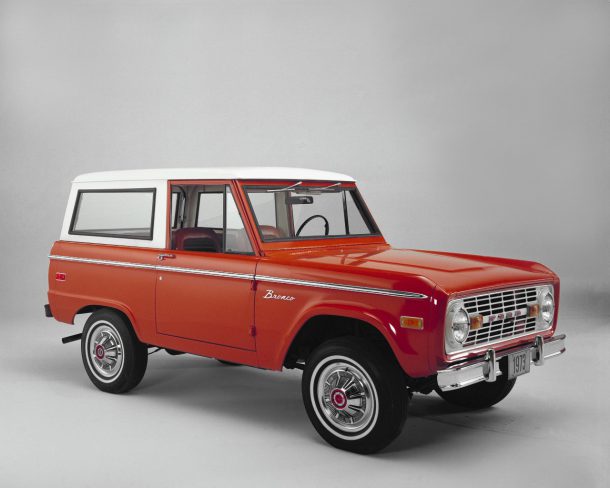

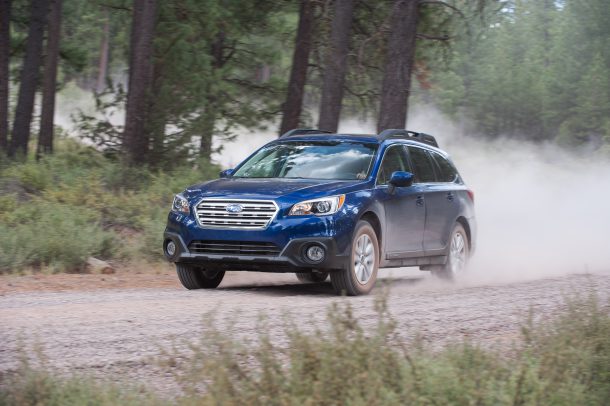
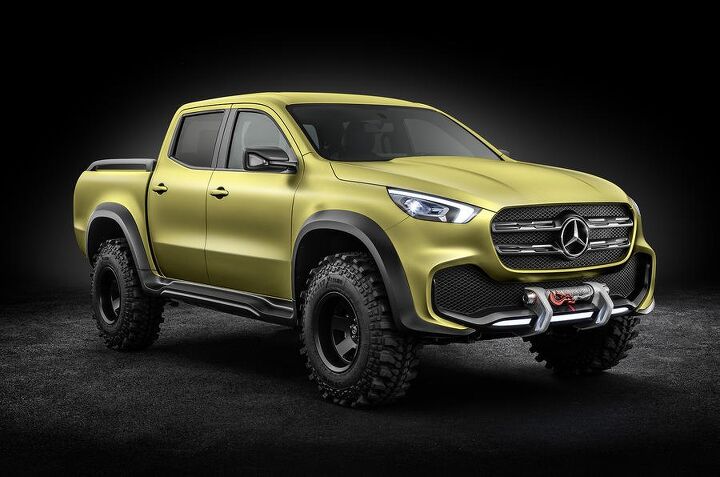




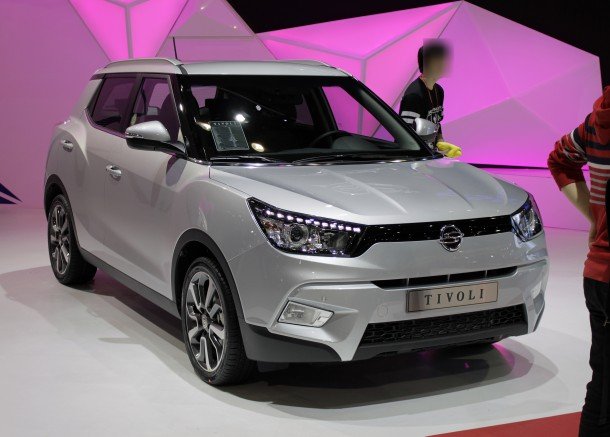












Recent Comments